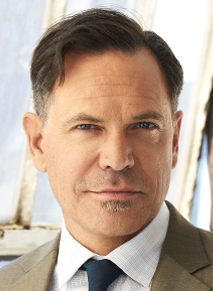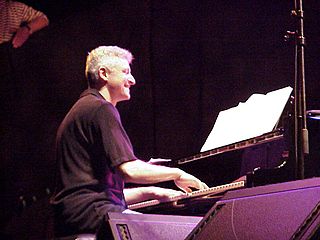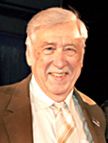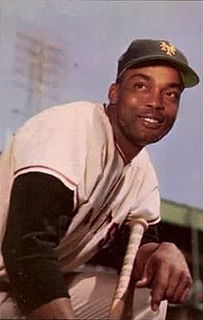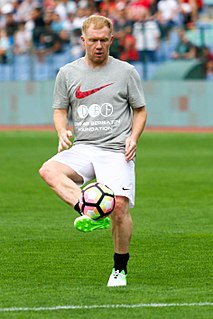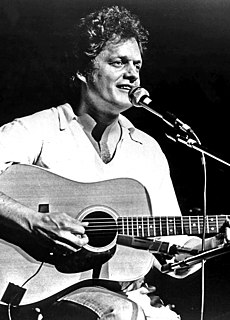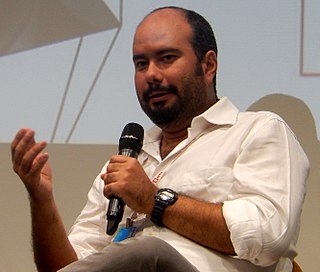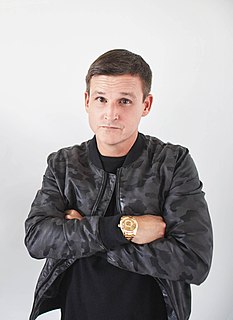A Quote by Kurt Elling
I really thought I was gonna have a straight gig. But these jazz musicians put their arms around me time and again and said, 'Hey, young fella, you're one of us. Come with us.' That's a big deal when you're young and looking for your way in the world.
Related Quotes
When you are old you can look back and see yourself when you are young. It is almost like looking down from heaven. And you see yourself as a young woman, just a big girl really, half awake to the world. You see yourself happy, holding in your arms a good, decent, gentle, beloved young man with the blood keen in his veins, who before long is going to disappear, just disappear, into a storm of hate and flying metal and fire. And you just don't know it.
I visited New York in '63, intending to move there, but I noticed that what I valued about jazz was being discarded. I ran into `out-to-lunch' free jazz, and the notion that groove was old-fashioned. All around the United States, I could see jazz becoming linear, a horn-player's world. It made me realize that we were not jazz musicians; we were territory musicians in love with all forms of African-American music. All of the musicians I loved were territory musicians, deeply into blues and gospel as well as jazz.
The hardest thing about being a young musician on the jazz scene is that there are so many styles of music, jazz and otherwise, that you're exposed to. The challenge is to use all that in your own way, to personalize all that has come before you and all that is happening around you. To get the music the way you want it, there's a lot of work involved.
The amazing thing about Sweets [Edison] was that he exactly spoke the way that he played! He was really unique, the one and only. He was one of the greatest Blues players that I ever heard and played with. Nobody can play like Sweets man, nobody! Most of us, musicians, frequently quote Sweets' phrases in our solos. Like Lester Young, Sweets had a big influence on us musicians, especially when we play some Blues.
Like no other writer in contemporary American literature, Brock Clarke has a way of looking at us, I mean looking straight at us--warts, lots of warts, and beauty and hypocrisy and love, too, the gamut. And hes done it again in this brilliant The Happiest People in the World, a novel that is as hilarious and thought-provoking as it is ultimately, deadly, deadly serious. I for one am grateful hes out there--watching our every move.
We're Americans. I don't consider us to be evil, I just don't think we know any better. We're a really young culture. We're hillbillies, and the rest of the world sees us that way. I travel all over the world, and probably the only worse rednecks than us are the Australians. And they're an even younger country.
In those days before hearing Charlie Parker and Dizzy, and before learning of the so-called bebop era--by the way, I have some thoughts about that word, "bebop"--my first jazz hero ever, jazz improvisor hero, was Lester Young. I was a big "Lester Young-oholic," and all of my buddies were Lester Young-oholics. We'd get together and dissect, analyze, discuss, and listen to Lester Young's solos for hours and hours and hours. He was our god.
The little boy went first day of school He got some crayons and started to draw He put colors all over the paper For colors was what he saw And the teacher said.. "What you doin' young man?" "I'm paintin' flowers" he said She said... "It's not the time for art young man And anyway flowers are green and red There's a time for everything young man And a way it should be done You've got to show concern for everyone else For you're not the only one.
What I love to tell young kids is ultimately let your dreams evolve around your opportunities. You have to focus on always learning. It's cliche, but the reality of it is that if you take action and try and fail you're gonna learn a lot by the time you try it again, and you'll build a foundation of experience that's gonna be ultimately the rock that allows you to find success or follow your dreams.
